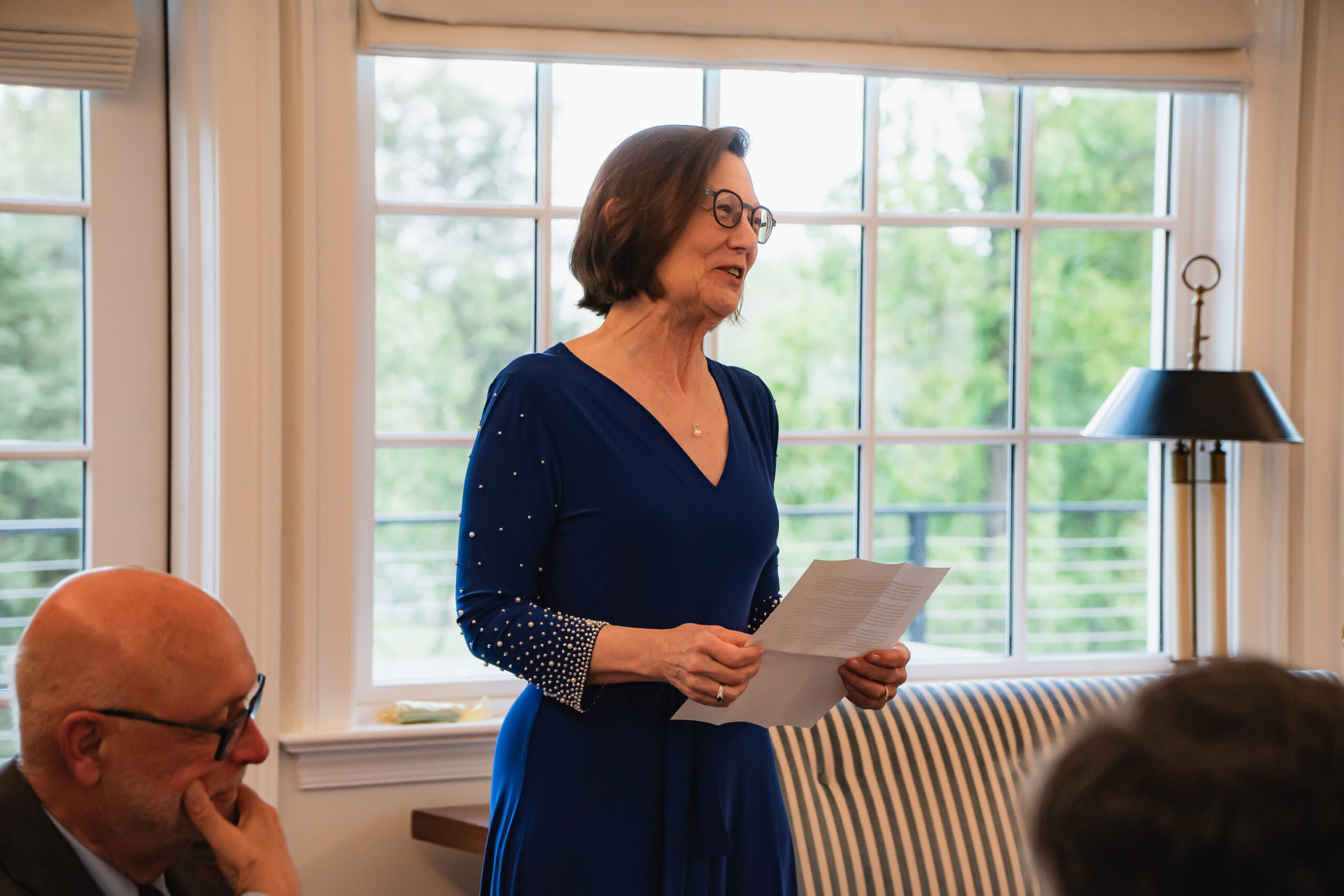
The Ministry of Mitzi Budde
Mitzi Budde, D.Min, Head Librarian and the Arthur Carl Lichtenberger Chair for Theological Research, retires after 33 years. The Rev. A. Katherine Grieb, Ph.D., ’83, reflects on the profound impact she has had on VTS.
Together we make The Episcopal Church stronger
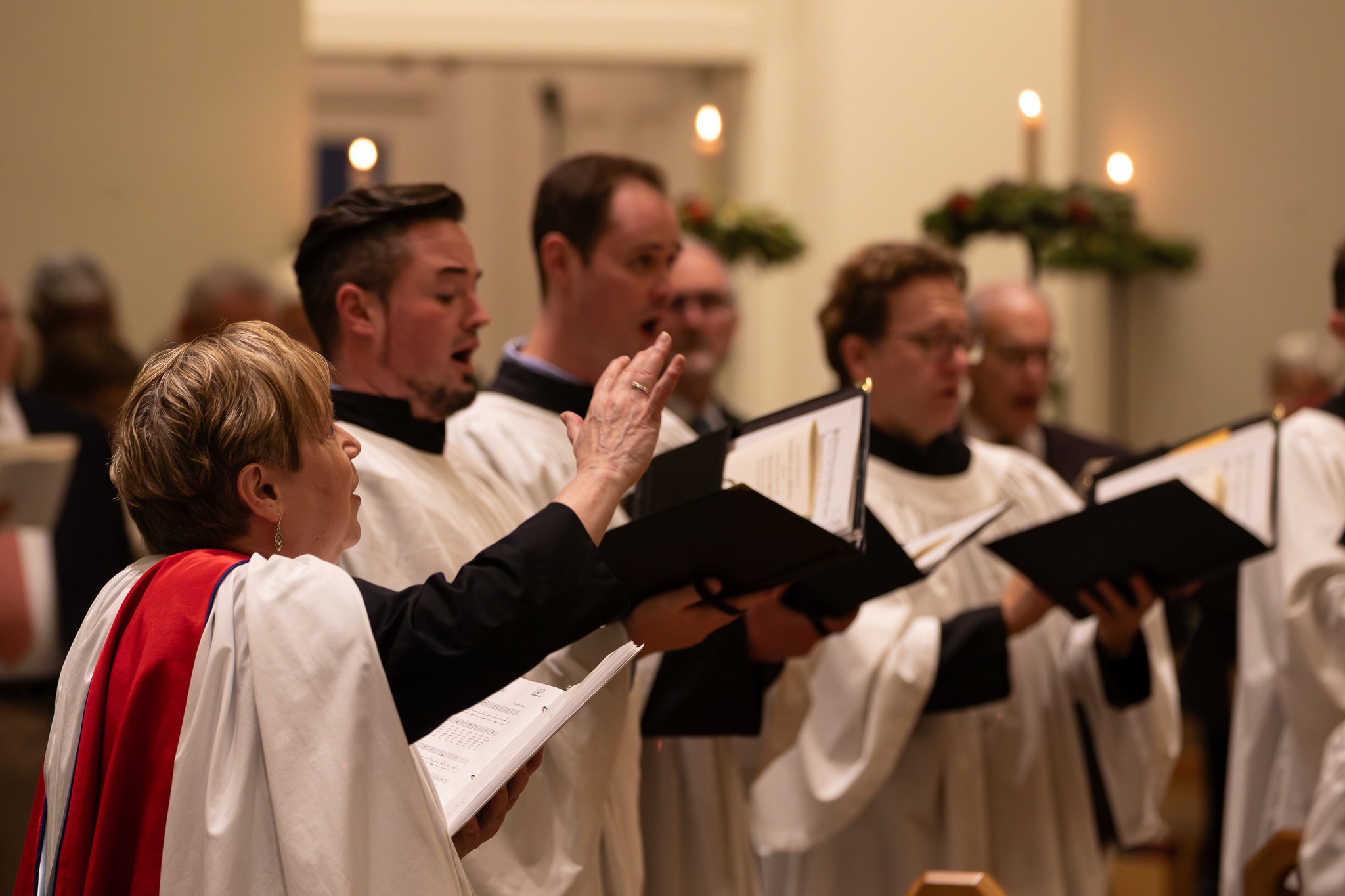
The Rev. William Bradley Roberts shares his inspiration behind his new musical setting of the Ordinary to mark the Seminary’s Historic Bicentenary.
When the Very Rev. Markham, Ph.D., dean and president of Virginia Theological Seminary, and the Rev. J. Barney Hawkins, Ph.D., approached me about writing a new musical setting of the Ordinary for the Historic Bicentenary, I was still on faculty, but subsequent retirement provided a lot of time to compose.
Early in the process I felt led by the Spirit to base the composition on early American hymn tunes from the shape note tradition. The old expression “All day singin’ and dinner on the grounds” describes the cultural context of these tunes. Shape note tunes seemed appropriate since they are roughly contemporaneous with the founding of the Seminary. Indeed, some of them might well have been sung in the first chapel on campus. This historic resonance seemed exactly right, because it linked the celebration of the 200th year of the Seminary with the history of the country, particularly with the American South, where the tunes predominated.
Though the harmonic palette of this musical setting is mildly modern, I incorporated certain antique features of shape note hymnody. These tunes have rather quirky personalities, often breaking the traditional rules of harmony and voice leading. As frequently happens, the slight oddities of the hymns have become the very reason we love them. No one today would dare “correct” these hymn tunes, because, like an antique Persian carpet with worn places, we have come to value the whole art including its oddities.
Shape note hymn tunes have the nature of early American, Southern folk music. Like nearly all folk songs, they are memorable and easy to sing. That suggested that a Mass based on these tunes might also be memorable and easy to sing.
Congregational music must be singable by average singers, not perhaps on the first try, but at least after a few repetitions. We know that these old tunes are successful and beloved, so that incorporating them into the Mass might yield confident, exuberant singing. The melodies have been slightly altered only when necessary to accommodate the text of the Ordinary, but in the end the music is largely faithful to the original tunes.
I pray that Mass on Early American Tunes might enrich the worship of God’s people, causing them to sing fervently to their Maker.

Mitzi Budde, D.Min, Head Librarian and the Arthur Carl Lichtenberger Chair for Theological Research, retires after 33 years. The Rev. A. Katherine Grieb, Ph.D., ’83, reflects on the profound impact she has had on VTS.
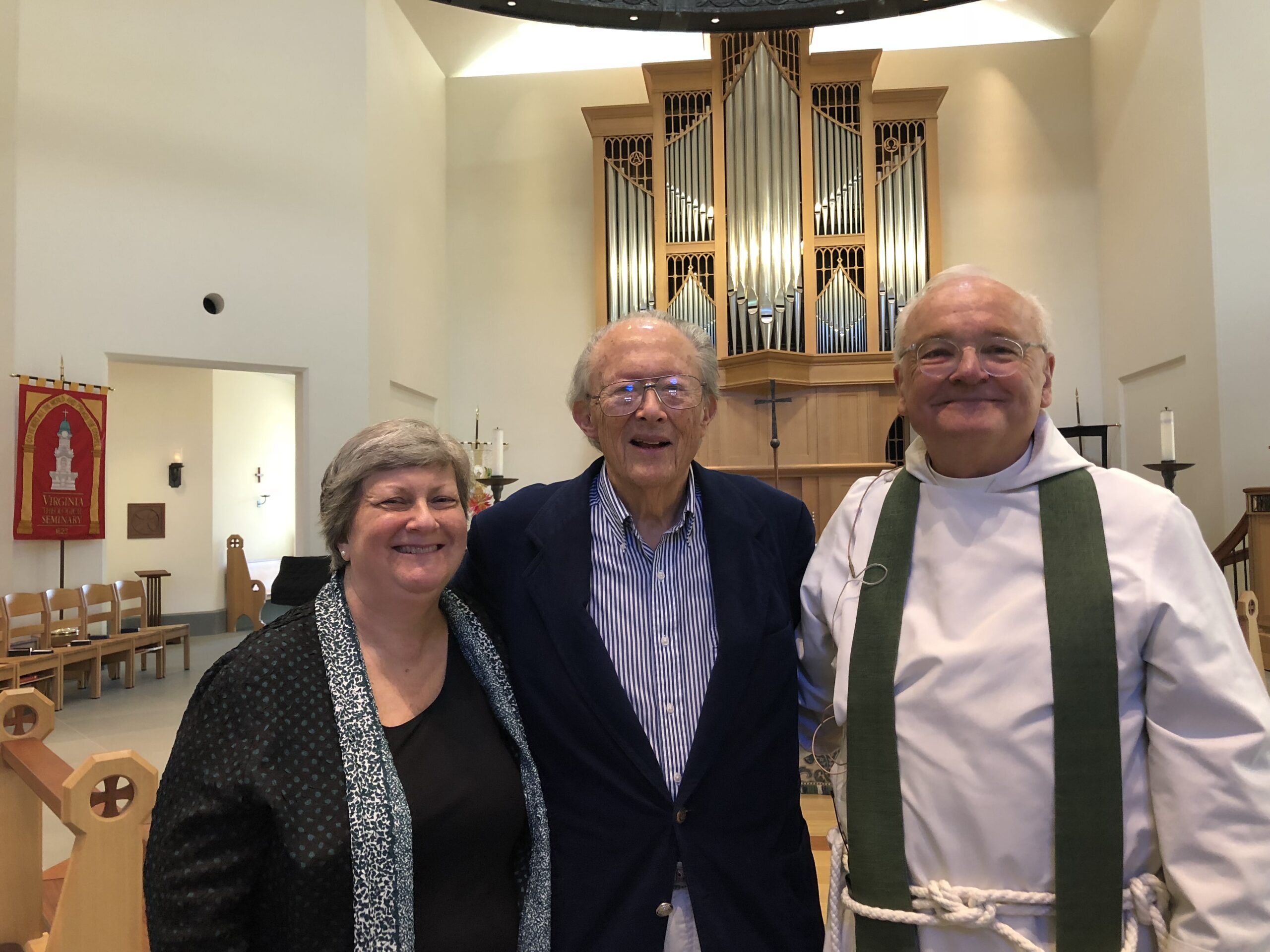
The Thomas Dix Bowers Preaching Fellowship Fund was established at Virginia Theological Seminary on May 6, 2008, by family and friends of the Rev. Dr. Thomas Dix Bowers, VTS ’56.
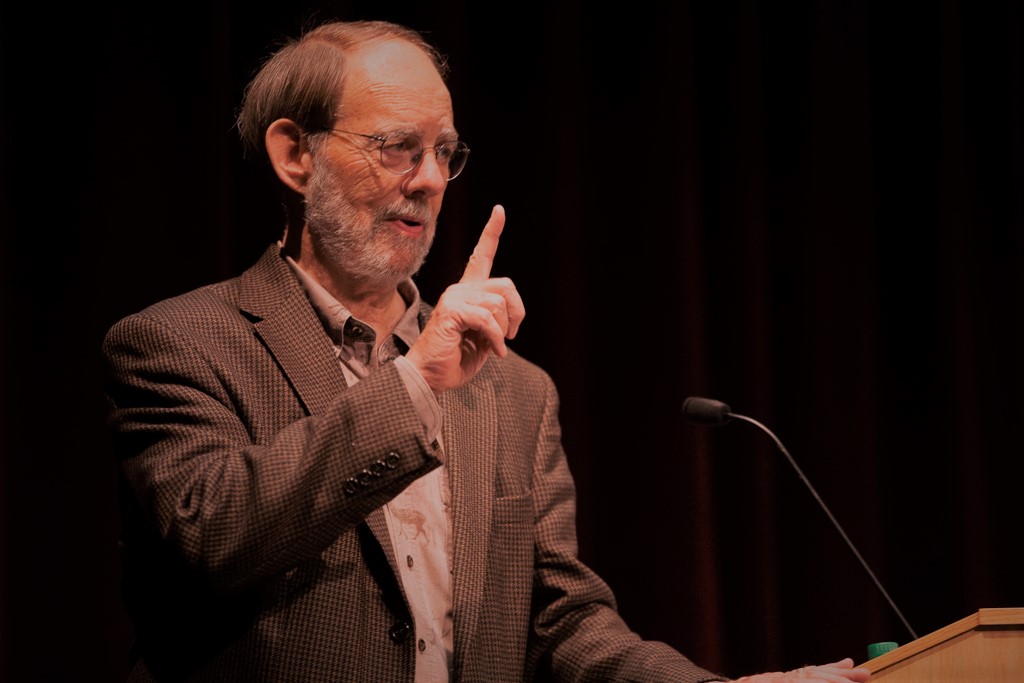
The Rev, Rode Molla, Ph.D., Assistant Professor, and the first Berryman Family Chair for Children’s Spirituality and Nurture at Virginia Theological Seminary, reflects on the legacy of the Rev. Jerome Berryman, D.Min.
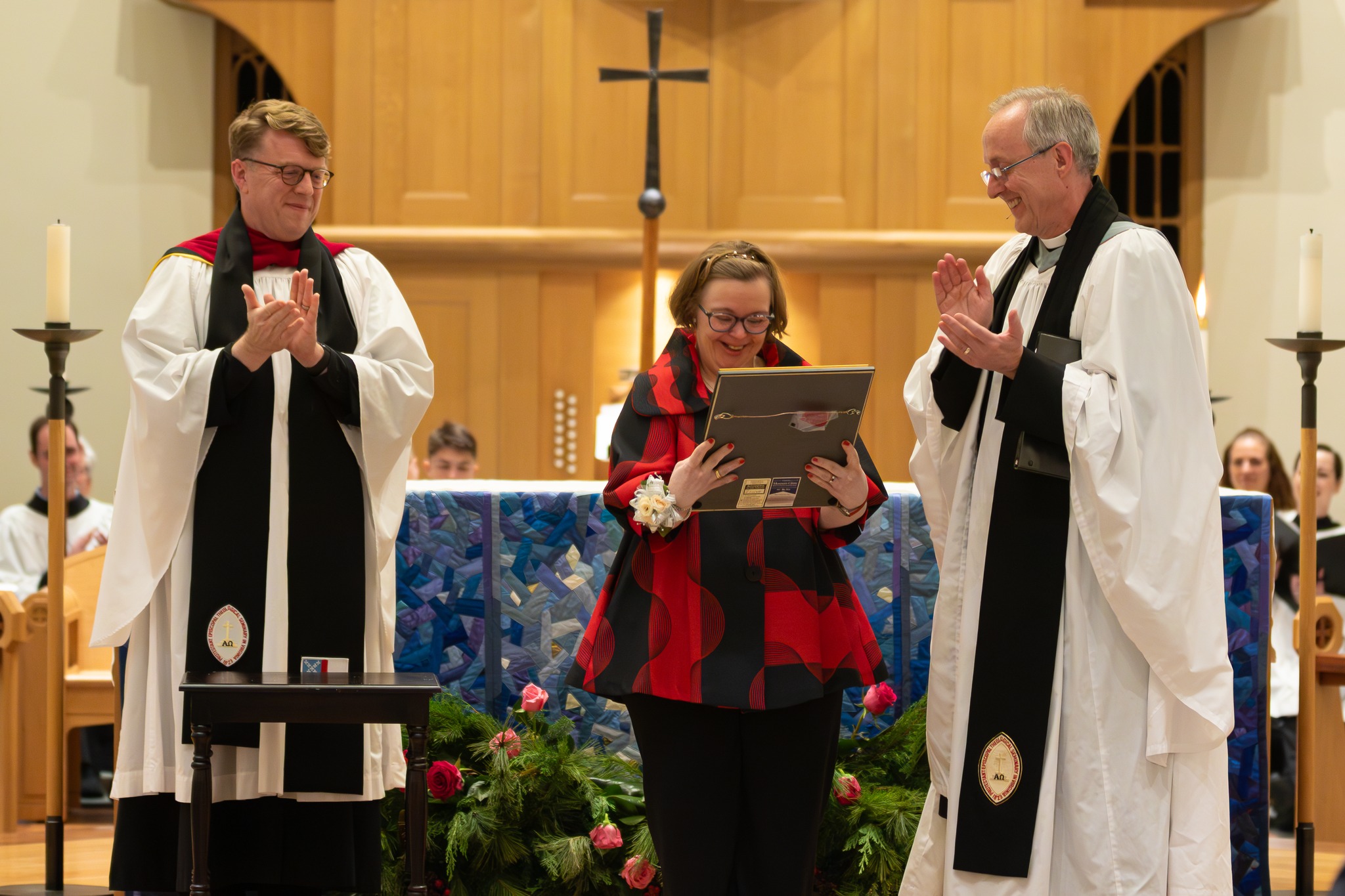
Virginia Theological Seminary was honored to confer the Dean’s Cross for Servant Leadership on Ellen Wofford Hawkins in recognition of her deep faith and ability to bring sunshine into the lives of others.